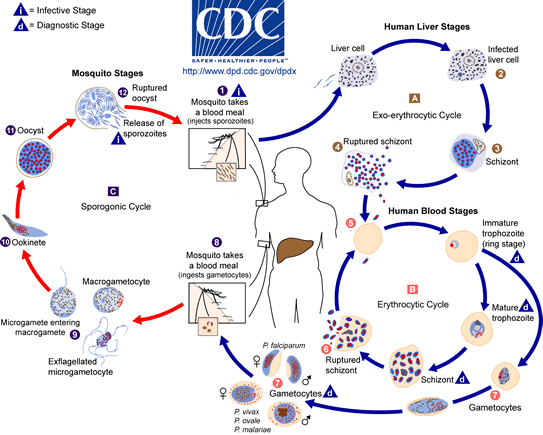QUESTION:
What are the causes of malaria?
ANSWER:
Malaria is caused by parasites of the genus Plasmodium. These are single-celled animals known as protozoans (from the Greek ‘protos’ and ‘zoia’ which together mean ‘first animal’) and they are transmitted via mosquitoes that feed on blood; the parasites need both mosquito and human hosts to complete their life cycle (see below a graphic of the complete life cycle, courtesy of CDC). In the process of reproducing, the malaria parasites destroy human red blood cells, which is what causes the clinical symptoms of disease that the patient experiences, such as fever, headaches and nausea.
There are four main species of Plasmodium that infect humans: P. falciparum, P. vivax, P. malariae and P. ovale. P. falciparum causes the most severe manifestations of the disease and is responsible for the majority of human deaths from malaria. There is a fifth type of malaria, P. knowlesi, which usually infects macaque monkeys but has been known to pass into humans as well.
For more on this, please see Christina Faust’s excellent blog post about her research.

Leave a Reply
You must be logged in to post a comment.